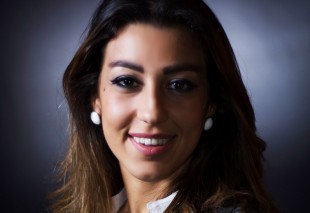

Interview: Royal Catering

Royal Catering director of special projects Ghida Sarieddine talks about standards of food safety across the UAE and how chefs can stay up-to-date.
Why did Royal Catering receive an Excellence Award from the ADFCA?
Royal Catering was the sole recipient of the Excellence Award in the catering sector from the Abu Dhabi Food Control Authority (ADFCA). This was due to our full compliance with its strict regulations for food safety management systems across all our catering contracts throughout 2015 — whether small, private events or massive public events, such as the Formula One motor racing event in November in Abu Dhabi’s Yas Island circuit.
Can you tell me about your relationship with the ADFCA?
We have worked with the ADFCA over the past four years and have established a very good relationship with them, which has given us a solid understanding of their codes of practice and regulations. For the Formula One, for example, we started months ahead of time in making sure the standard operating procedures and food safety manuals required for the event were fully in line with the ADFCA regulations. We had several meetings and workshops with ADFCA to go through the manuals and ensure that we were complying with all their requirements.
In addition, ADFCA invited us to be part of its work. I was part of its HACCP team for three years, working closely with the regulations sectors during the making of the codes of practice and the Salamat Zadna project, a food safety system developed by ADFCA for small businesses.
What are the challenges involved in catering for events like Formula One?
Whether catering for a small event or one as huge as Formula One, our food safety management system is the same, which is that in the preparation and distribution of food, the highest standards of hygiene must be observed.
We have been catering for the Formula One since it started in 2012 and are familiar with the on-site kitchens, which helps us maintain the level of food safety that we do. The main challenge in large scale events, is ensuring that all the staff working for the event are well trained and follow the standard operating procedures produced by Royal Catering’s hygiene and quality department.
Another challenge is in maintaining a smooth and fast line of communication between the managers on location, and the hygiene and quality in charge of the locations. These are overcome by ensuring that intense training is given to all the staff through regular workshops and by getting the full commitment and compliance towards the set hygiene standards and the formulated manuals from all the managers and supervisors in charge of the locations. Having a communication and responsibility matrix set prior to the event, and training given to the Royal Catering team to ensure that a proper channel of communication is adhered to during the event, goes a long way in ensuring full compliance.
Article continues on next page...
What do you think of hygiene and food safety education in the region?
I’m glad to say that the level of hygiene in the UAE is quite high, due to the vigilance of ADFCA inspection teams. The Authority has a comprehensive programme in place to educate the hospitality industry on food safety management and its regulations; this was done through many workshops that ADFCA conducted with its stakeholders. Moreover, the Codes of Practice and the project of Salamat Zadna (for small businesses) were a major support, helping all the F&B outlets to have clear information on what is required by ADFCA.
What more can be done to ensure chefs in the region have the resources they need to ensure, and promote, food safety in their operations?
As food safety is part of every chef’s training, it should be second nature for him or her to follow safe practices when preparing food but, with busy schedules, it may not always be the case. Having regular workshops conducted by ADFCA with chefs helps ensure they follow up-to-date regulations. Having a dedicated hygiene and quality team, such as at Royal Catering, to supervise operations on an hourly and daily basis, ensures better compliance with ADFCA regulations, as they will be knowledgeable about the latest guidelines and regulations in industry standards, and they will inspect and ensure corrective action is taken whenever non-conformity is witnessed. They will also hold regular training sessions and workshops for the kitchen staff to refresh their hygiene training and enhance their knowledge with regards to food safety and good hygienic practices such as cleaning, preventive maintenance and pest control.
What is Royal Catering focusing on throughout 2016?
We have just launched ‘82L8’ (8 to late), a new grab-and-go dining concept, featuring more than 60 nutritious meals, salads, sandwiches, snacks, drinks and desserts. It will be available across Abu Dhabi when we open the outlets, install new vending machines, and roll out trolley recharge stations for offices. Our quality control officers are present in the Royal Catering kitchens to ensure that quality standards are strictly adhered to and also to monitor our chefs to safeguard product consistency of every food item produced.
As well as working with ADFCA, we have been working with the Health Authority of Abu Dhabi (HAAD) to ensure that 82L8 food includes many items that are Weqaya-compliant. You’ll find the Weqaya logo on many of our 82L8 products, as well as their nutritional values.